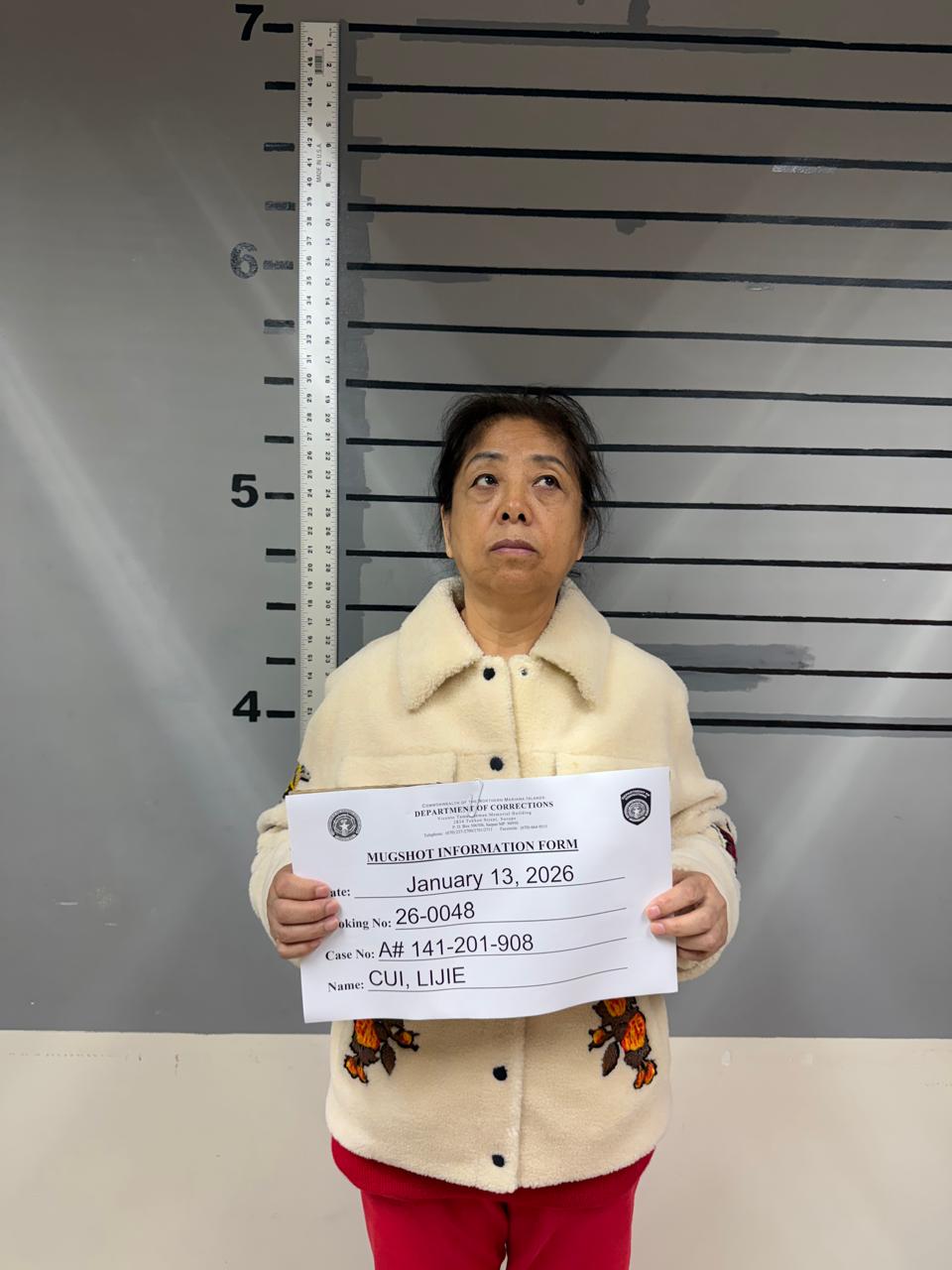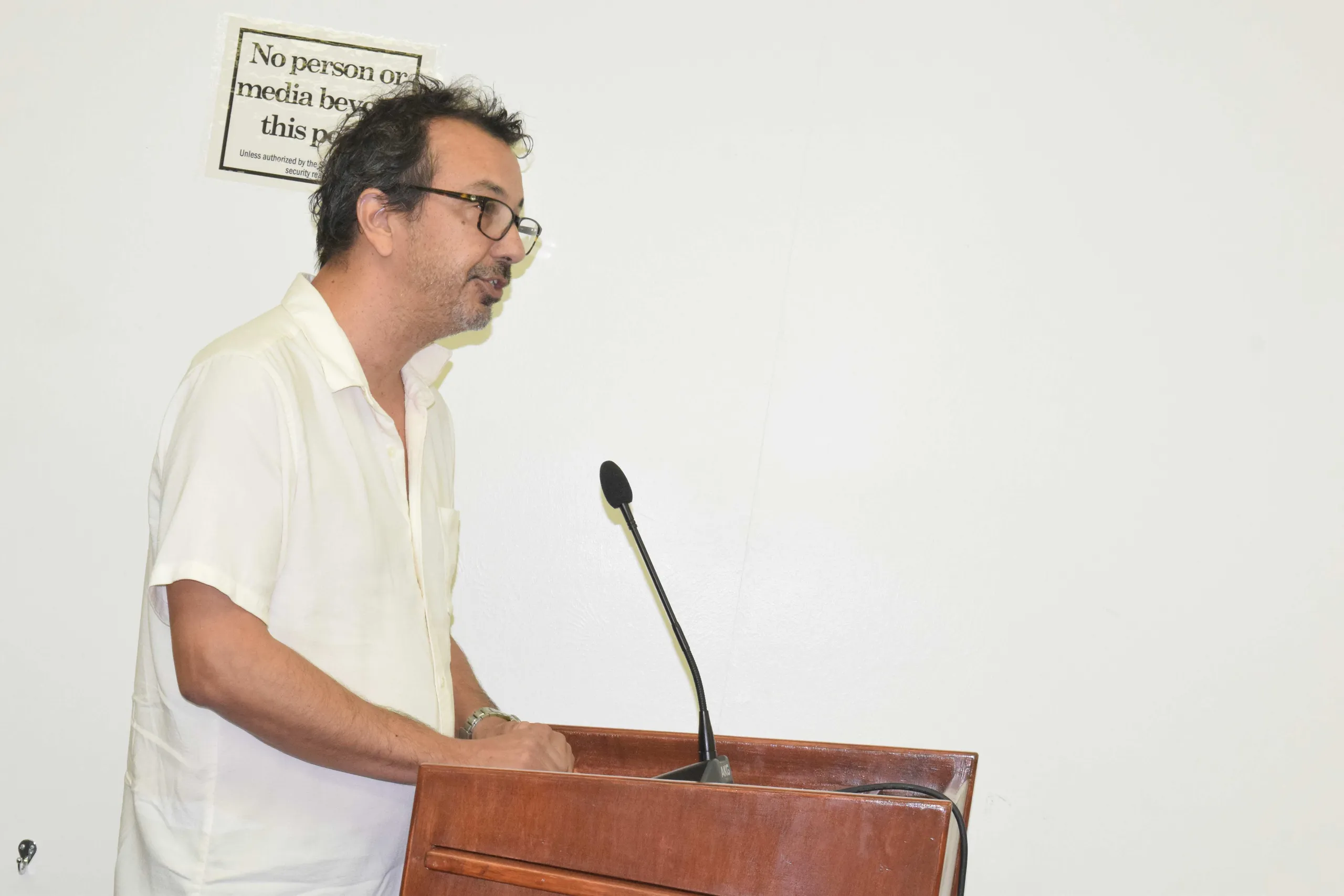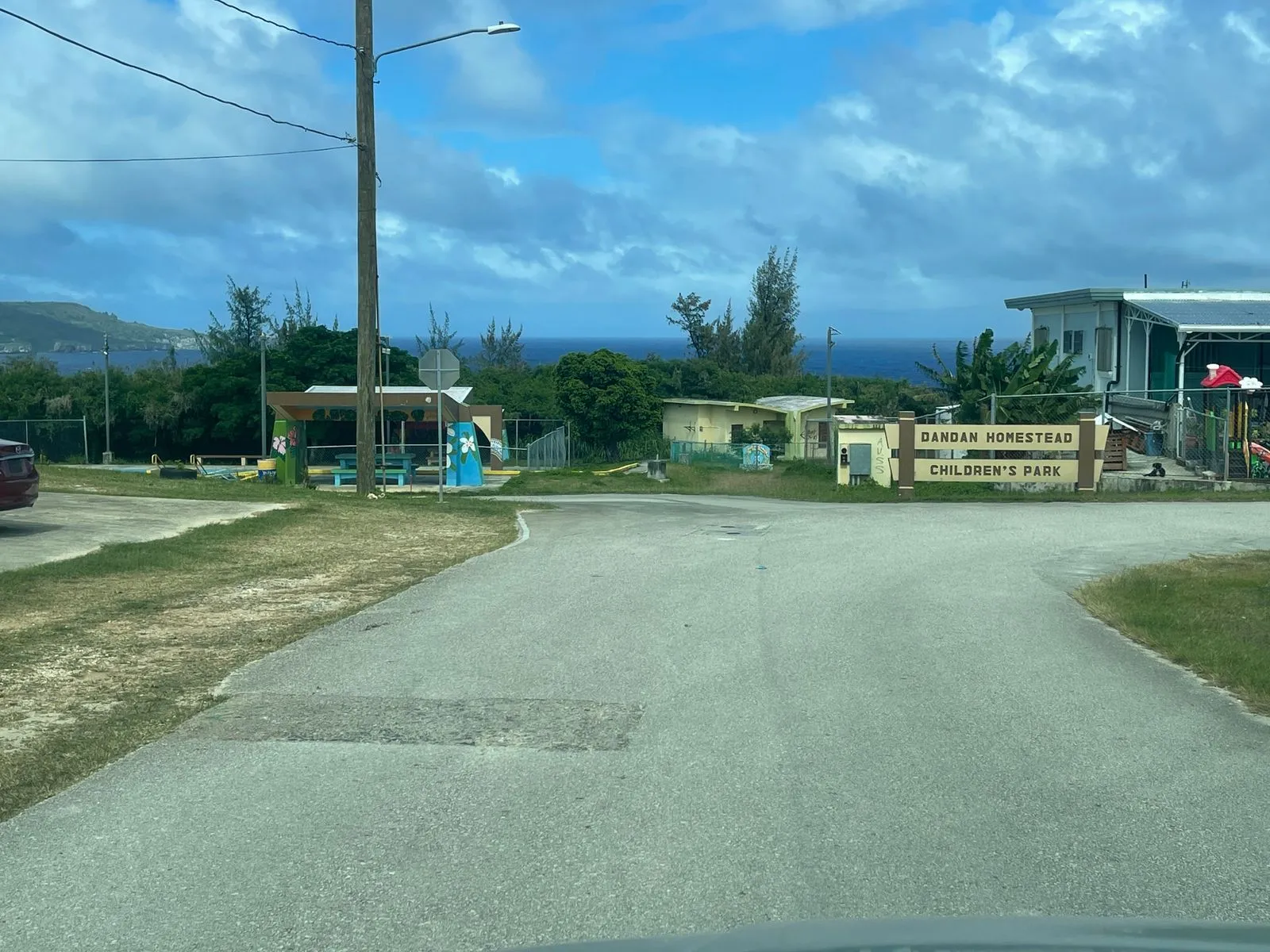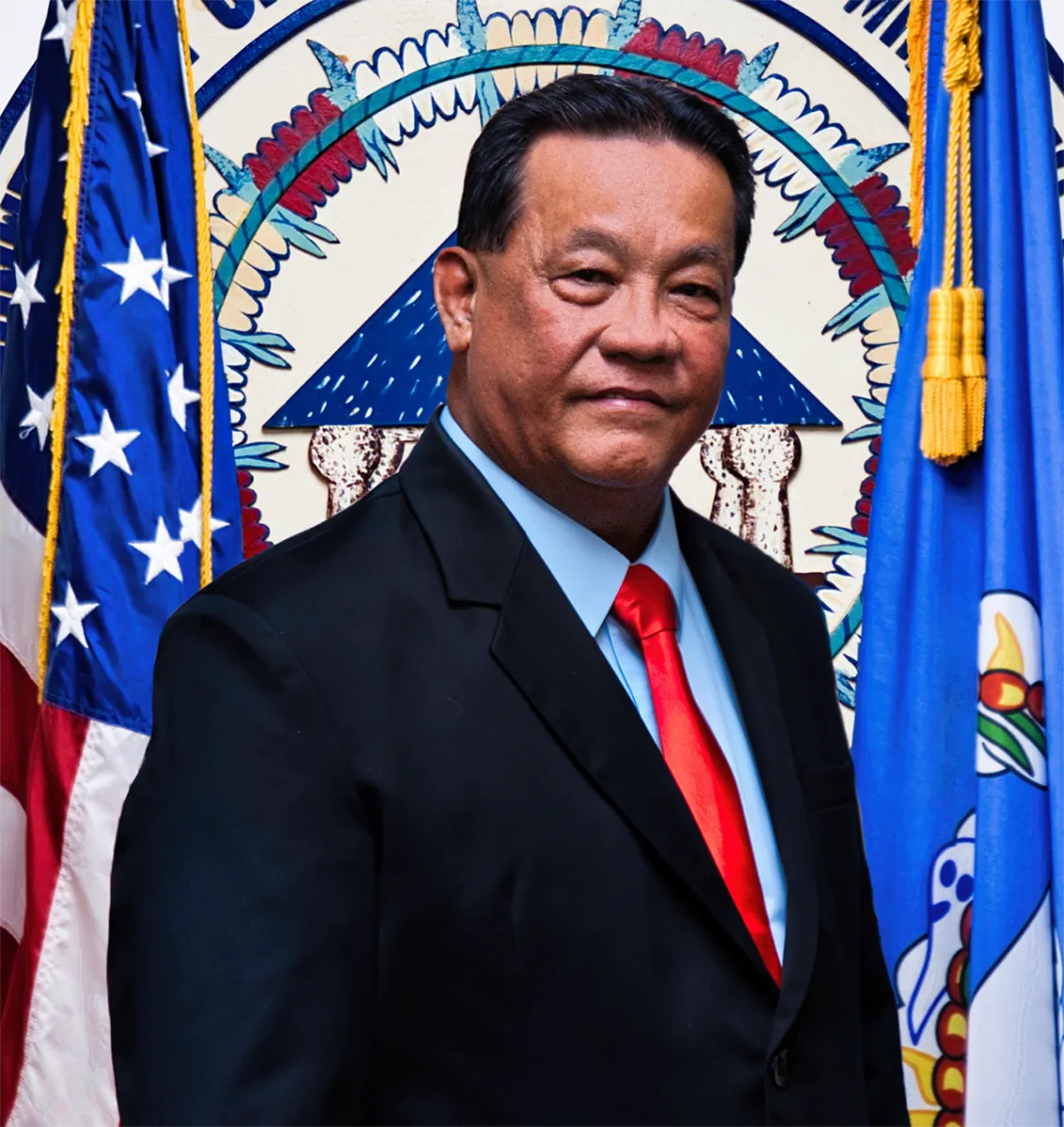
INITIATIVES to allow gambling activities beyond casino gaming remain an option for Tinian as the island seeks to boost revenue for public programs and jobs, according to two of its senators.
In separate interviews, Sens. Jude U. Hofschneider and Frank Q. Cruz also expressed disappointment with Gov. Arnold I. Palacios’ veto of Senate Local Bill 24-1, which would have allowed internet gaming on Tinian and establish a “Tinian stable token.”
“Collectively, the Tinian leadership will continue seeking ways to ensure that the gaming initiative is still an option for [the] municipality for revenues to support public programs and employment,” Hofschneider said.
He introduced Senate Local Bill 24-1, which Cruz and Senate Vice President Karl King-Nabors co-sponsored.
“Obviously, we are disappointed that this piece of legislation was vetoed for the second time,” Hofschneider said.
On Sept. 20, 2024, the governor vetoed a similar bill, S.L.B. 23-5, “on the basis of multiple concerns” raised by the Office of the Attorney General, saying it “conflicts with relevant statutes, raises constitutional issues, and presents serious enforcement and implementation concerns.”
According to Palacios, S.L.B. 23-5 did not “clearly extend the authority of the Tinian Casino Gaming Control Commission to regulate, license, and monitor internet gaming operators because much of the licensing, monitoring and enforcement requirements contained in the Revised Tinian Casino Gaming Control Act of 1989 apply to hotel casino operators, not internet gaming licensees.”
In a WhatsApp interview on Monday, Hofschneider said, “We believe we addressed the concerns raised in the initial legislation.”
S.L.B. 24-1 states that “the conduct of internet gaming pursuant to an internet gaming license, in accordance with this chapter, and any other applicable Act, and the regulations established by the Commission to regulate internet gaming, is lawful. Operating internet gaming is conditioned on the implementation of age verification software reasonably designed to block access to minors, and the implementation of a geolocation software limiting internet gaming activities to within intra-island borders of the Second Senatorial District and between jurisdictions where the conduct of internet gaming is not prohibited by law.”
Hofschneider said internet gaming “is already in our gaming initiative.”
Tinian Local Law 20-5, which then-Gov. Ralph DLG Torres signed on Oct. 30, 2017, amended the Revised Tinian Casino Gaming Control Act of 1989, to provide for internet gaming on Tinian.
Nonetheless, Hofschneider said, “we will expand further on the legal concerns raised and go from there.”
He said S.L.B. 24-1 aimed to remove the need for a “brick & mortar” requirement and place a “reasonable” annual license fee of $20,000 in addition to the 10% tax and capping the number of licenses to 11.
For his part, Cruz said they were not happy that the governor vetoed an internet gaming proposal, again. “We, the Tinian leaders, are trying to make ways to generate revenue for the municipality,” he said.
Cruz said the legal counsel of the Tinian and Aguiguan Legislative Delegation worked with the administration to address the legal concerns regarding the initial bill passed by the delegation in the 23rd Legislature.
“We thought we have addressed those concerns already,” Cruz said.
Casinos
The Tinian Dynasty Casino Hotel, which opened in 1998, ceased casino operations in August 2015 and hotel operations in March 2016, amid allegations of fraud, negligent misrepresentation, and wrongful termination.
In December 2024, Tinian Diamond Hotel and Casino closed its doors a year after it opened.
Bridge Investment Group was licensed to build the Tinian Diamond Hotel and Casino under the EB5 visa program.
(Bridge Investment Group and Saipan-based Bridge Capital LLC are not affiliated in any way.)
Last month, a lawsuit was filed in the Southern District Court of New York, alleging that Tinian Diamond Hotel Casino as operated by Bridge Investment Group was a “scam.” Complainant Tianyi Wei accused BIG of duping her into investing $800,000 in a non-existent Tinian Wyndham Ocean View Resort.
But U.S. District Judge Jesse Furman dismissed the amended complaint without prejudice “for lack of subject-matter jurisdiction.”
In his order of dismissal on March 6, 2025, Judge Furman also directed the clerk of court to close the case, stating that “any pending motions are moot….”











